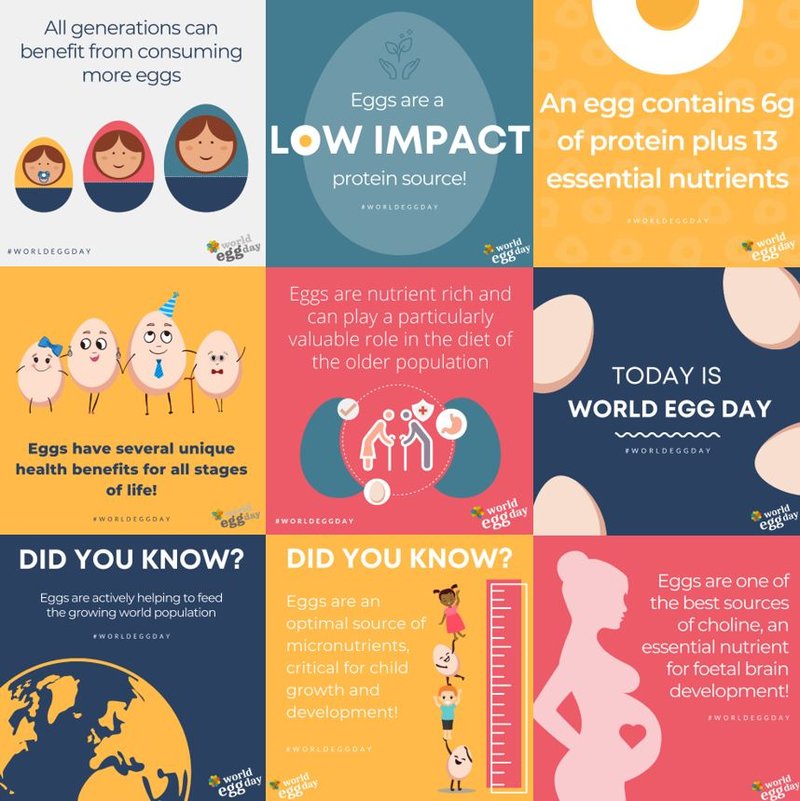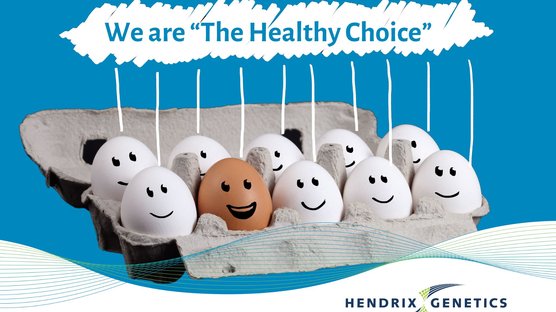
Published on Oct. 7, 2021
The versatility of eggs
We are regularly told how important it is to eat a balanced diet; we need protein, essential fatty acids, vitamins and nutrients. Fruit, vegetables, nuts and dairy naturally spring to mind, and combined can provide all these, but there is one food that contains them (almost) all – eggs.
Eggs - Nature’s Vitamin Pills
Eggs provide an exceptional protein source as well as fatty acids and a large range of vitamins, minerals, and bioactive compounds that could potentially improve birth outcomes, child nutrition, and brain development. Relative to single nutrient supplements, eggs deliver nutrients and other hormone or immune factors in compounds that may be more readily absorbed and metabolized. The bioavailability and density of their nutrients means eggs have the capacity to directly improve human health outcomes around the world.
Eggs are a healthy, nutritious and affordable part of the diet for people at all stages of life, including growing teenagers, pregnant and lactating women, the elderly, and infants, particularly those in nutritionally vulnerable areas. The health benefits of eggs are vast. Eggs contain 13 essential nutrients, including choline, which supports fetal brain development; vitamin B12 and iron for child growth and overall brain function; and iodine, which aids the healthy functioning of the nervous system and maintains healthy skin. All these health benefits make that eggs are officially recognized as a high-quality protein. Eggs are beneficial throughout the life course, with potential to fuel development during the first 1,000 days. The high nutrient density of eggs enables them to support the body’s natural immune system, advance physical growth, and aid child brain development.
This unique range of qualities means that eggs are an ideal choice for all different kinds of lifestyle as well as age, from athletes to academics.
| Nutrient | Functionality |
|---|---|
| Iron | Iron is necessary for carrying oxygen throughout the body and helping to produce energy. Iron helps prevent anemia. |
| Vitamin A | Vitamin A is needed for the healthy development of cells; it helps maintain healthy skin and eye tissue and assists in night vision. Vitamin A also increases the immune system. |
| Vitamin B2 (Riboflavin) | Riboflavin keeps skin and eyes healthy. |
| Vitamin B5 (Pantothenic Acid) | B5 is important for the body’s metabolism, for releasing energy from food and for mental performance. |
| Vitamin B12 | Vitamin B12 is necessary for the formation of red blood cells. It is important for the immune system to function properly and helps protect against heart disease. |
| Vitamin D | Vitamin D is necessary for healthy bones and teeth; it is essential for the absorption of calcium in the body. Vitamin D also helps to protect against some cancers and auto-immune diseases. |
| Vitamin E |
Vitamin E helps to maintain our reproductive system, nerves and muscles. It helps to maintain good health and prevent disease. |
| Folate | Folate is necessary for the development and maintenance of new cells. It helps protect against serious birth defects and is therefore especially important for pregnant women. |
| Protein | Protein is essential for building and repairing muscle, organs, skin, hair, and other body tissues. It is needed to produce hormones, enzymes and antibodies. |
| Selenium | Selenium helps prevent the breakdown of body tissues; it protects the DNA, proteins, and fats in cells against damage. Selenium is important for a healthy immune system and functioning thyroid gland. |
| Lutein & Zeaxanthin | As well as helping to maintain good vision, Lutein & Zeaxanthin can help reduce the risk of age-related eye diseases, such as cataracts and macular egeneration. |
| Choline | Choline is vital for nerves and muscles to function correctly and helps brain development and memory functioning. |
| Iodine | Iodine is needed for producing the thyroid hormones and is vital for the normal functioning of the thyroid gland. |
Fostering decent livelihoods
The egg industry is a significant source of income for rural populations around the world. In low and middle-income countries, women represent a large proportion of egg farmers and rely on their farms to feed their children. Egg consumption is low among women of reproductive age and young children with the lowest intakes in the African region, India, and among children 6 to 8 months of age in all regions. Cultural factors play a role in many nutrition practices, including around consumption of eggs during pregnancy and early childhood, though most reports are anecdotal. Making high quality food available to the hungry is a priority for egg business around the world. Eggs can make a huge difference; they are an excellent source of protein, minerals, and vitamins. The egg industry is committed to its Corporate Social Responsibility and making sure people throughout the world have access to a sustainable, good quality food supply.
Protecting our planet
Eggs are officially recognized as a low impact protein source by the World Resources Institute. Thanks to our breeding efforts, improved efficiencies and continuous gains in productivity and longevity have been achieved. As a result, eggs have been able to maintain and further improve their low environmental footprint.




